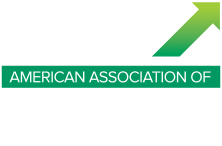Consolidating loans can be a vital decision that can have a significant impact on one’s financial and credit situation. This article will delve into what loan consolidation is, the different types, the potential advantages and disadvantages associated with it, and frequently asked questions regarding it. This comprehensive guide will give you a deeper understanding of loan consolidation, allowing you to make informed decisions that promote financial stability and growth.
Understanding Loan Consolidation
Finding yourself in a challenging financial situation can be daunting, especially when faced with multiple debts. The concept of consolidating loans comes in handy here. Loan consolidation, a possible debt consolidation option, involves combining several loans into one major debt with potentially lower interest rate.
However, the consolidation process isn’t a one-size-fits-all solution. Your annual income, personal loan options, and credit history can all affect your eligibility for consolidation. Also, it’s crucial to consider variables like loan term, origination fees, and the impact on your credit score before you opt for this route. With excellent credit, you typically get the best loan options with the lowest rates, turning the tides in your favor.
Notably, loan consolidating is different from debt settlement, credit counseling, and debt management plan options. Unlike a debt management plan, when you consolidate your debt, you are not negotiating for reduced payment terms. And unlike debt settlement, consolidating loans does not involve negotiating for a reduced balance. This is how it differs from such credit cards or credit card debt relief options.
Pros of Consolidating Loans
To help you understand the benefits of consolidating loans, let’s start with some terminology. A consolidation loan is a type of financial solution that combines multiple debts into a single loan. The aim is to simplify your payment terms and potentially secure a lower interest rate. Credit cards, personal loans, home equity loans, and other forms of debt can all be bundled into one debt consolidation loan.
If you’re considering debt consolidation, it’s important to first assess your financial situation and understand the various options available. Factors like your credit score, annual income, and the types of debt you have all play a role in determining whether consolidation is a good choice for you. Explore loan options from various lenders, consider their repayment terms and origination fees, and even speak to a credit counselor before making a decision. An effective debt management plan might just be a few steps ahead.
Now, let’s delve into the main benefits of consolidating your loans, from simplified payments and potentially lower interest rates to credit score improvement.
Simplified Payment Process
One of the biggest advantages of consolidating your loans into a single debt consolidation loan is the simplified payment process. Instead of juggling numerous payment terms, deadlines, and interest rates associated with multiple credit cards and loans, you’ll only have one loan to manage.
This simplification can alleviate the stress of managing multiple debts and reduce the risk of missed or late payments, which can negatively impact your credit history. Remember, timely payment of bills and loans is a significant factor in maintaining or improving your credit score.
A consolidated loan typically involves a fixed repayment term. This means you can plan your finances with certainty, knowing exactly when your loan will be paid off. If you find lower interest rates, you could potentially save on the total repayable amount and clear your debt faster.
Potentially Lower Interest Rates
One of the main reasons people go for debt consolidation options is the possibility to secure a lower interest rate. Lower interest rates mean that you spend less on interest payments over the loan term, freeing up funds that you can put towards repaying the loan principal, thus getting out of debt faster.
The interest rate you can secure largely depends on factors like your credit score, the federal funds rate, and lender’s policies. For instance, people with excellent credit scores usually secure the lowest rates. But even individuals with average credit can find debt consolidation loans with lower rates than their existing loans, especially if those are high-interest credit cards.
Increased Credit Score
Debt consolidation can also positively impact your credit score, but it depends on how you handle the process and maintain discipline in your financial habits post-consolidation.
By moving your Credit card debt to a debt consolidation loan, you’ll effectively decrease your credit utilization ratio, a factor which makes up 30% of your FICO score calculations. A lower credit utilization can lead to an improved credit score.
In addition, by making timely payments towards your consolidated loan you can further boost your credit score. It’s important to remember, however, that while consolidation may improve your credit, you also need to address the spending habits that led to debt in the first place for long-term financial wellness.
Consolidating loans can be a pivotal step towards financial freedom for some. Be sure to thoroughly understand your options, seek advice from reputable resources or consult a credit counselor, and consider the benefits against any potential consequences.
Cons of Consolidating Loans
When pondering debt clearance, various debt consolidation options often come to mind. These options, ranging from personal loans to obtaining home equity loans, provide a sigh of relief for those looking to organize their debts into one payment method. However, it’s crucial to consider both aspects – the pros and cons of consolidating loans, before taking any action.
While debt consolidation helps you manage your repayment terms, offers lower interest rate and improves credit score, there are also downsides which must be considered. These include extended repayment period, possible increased costs and risk of losing borrower benefits.
It’s always recommended to research and consult with a credit counselor or customer service before settling on a debt consolidation loan. Now, let’s delve into our main three potential drawbacks of loan consolidation – extended repayment period, possible increased costs, and risk of losing borrower benefits.
Extended Repayment Period
The primary downside of debt consolidation is that it usually comes with longer loan terms. The lengthier the loan term, the more interest you end up paying over time, even if the interest rate is significantly lower.
For instance, credit card debt can be racked up and repaid multiple times, but once it becomes part of a consolidated loan, the debt is locked until it’s entirely repaid. You could fall into the trap of extending your debt faster than intended.
While an extended repayment term may offer the illusion of smaller, manageable payments, in reality, you might pay more in interest over the loan’s lifetime. Thus, you have to carefully consider your personal loan options before consolidating your debts.
Possible Increased Costs
Another possible con of consolidating loans is the increased costs. While the idea of obtaining lower interest rates through debt consolidation sounds enticing, several hidden costs could elevate your debt. These costs include origination fees, annual income requirements, and variable interest rates.
An origination fee is a charge that some lenders impose to process a new loan. Some lenders may also have minimum annual income and credit score requirements, thus limiting the availability of certain consolidation options for people with bad credit or lower income. Likewise, be aware of variable interest rates that can increase over time, leading to higher repayment amounts and the overall loan cost.
Before consolidating your debts, it’s crucial to conduct adequate research and understand the origination fees, eligibility requirements, and the possibility of variable interest rates. Always consider seeking advice from a credit counselor or customer service to help you make an informed decision.
Risk of Losing Borrower Benefits
The final downside of consolidating loans is the potential for the loss of borrower benefits. When you consolidate your loans, especially federal funds loans, you may no longer qualify for certain benefits, such as interest rate discounts, principal rebates, or some loan cancellation benefits.
For example, if you consolidate a fixed interest rate loan into a new debt with a variable interest rate, you risk losing the benefit of predictable repayments. Thus, it’s advisable to carefully review your current loans’ terms to fully understand what you could lose before proceeding with a consolidation loan.
Consolidate Your Loans With Big Think Capital
Saving money is no longer a distant dream with reduced interest rates—a prime advantage that consolidating loans with Big Think Capital offers. With the perks such as stable payment terms and waiving off of origination fees, you are able to inch closer towards financial freedom.









